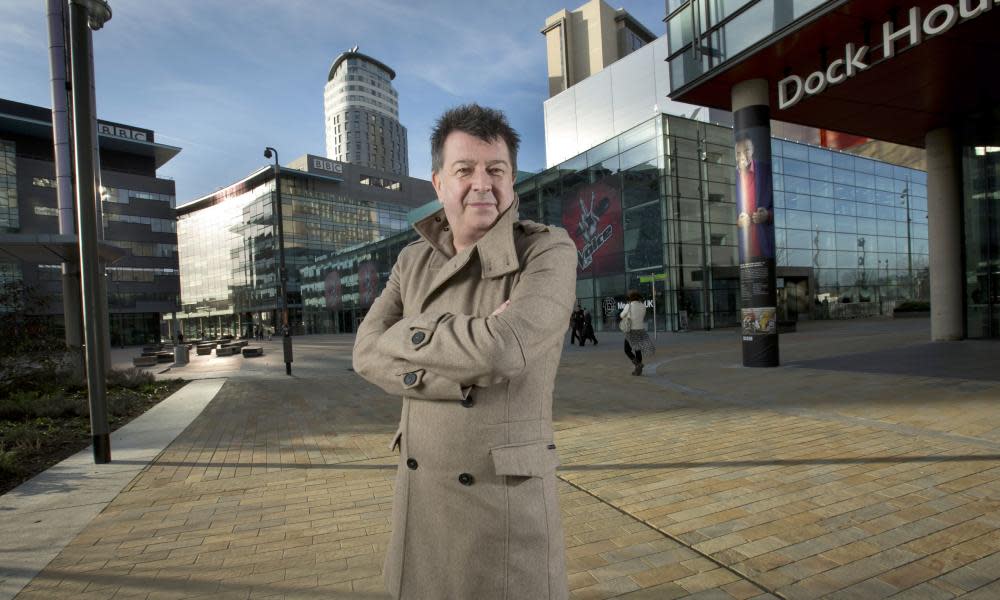Are northern English accents dying out? Are they eck as like

Ah, the stalwarts of summer! Cowes, Goodwood, the Proms and, these days, gloomy academic prognostications about the future of northern accents. Last summer, Manchester University claimed that the speech differences of the big northern cities were fading, merging into a generalised uber-northern that, implausibly, might include Alan Bennett, Ant and Dec and Atomic Kitten. This year, Cambridge and Portsmouth “eggheads” (compulsory designation) tell us, yet more gloomily, that northern accents could start dying out within 45 years, drowned by the rising tide of “estuary” English and the dominance of southern dialects which apparently are “easier to pick up” for children.
Really? Easier to pick up where? Where are these weird kids? The mean streets of Cheltenham perhaps but not Chorlton. From my experience, Mancs are getting more Manc, Geordies more Geordie and Scousers more adenoidal with every passing football and festival season, brandishing their glottal stops and short a’s as if they were cudgels. But there is more.
Apparently “strut”, which currently rhymes with “foot” in northern England, will no longer do so by 2066. The researchers fail to tell us, though, what it will start to rhyme with. If they think anyone in Hull is going to pronounce it “straht” (in the unlikely event they’re called upon to commentate on a disco dancing championship or review the Rolling Stones live), frankly, they have anarthar thing carming.
De facto leader of the opposition Marcus Rashford takes on the government in properly nasal Wythenshawe via Withington
On it goes. “Back end” – it means autumn in some northern parts – will “completely disappear within 20 years”. In all my years among the peoples of the north, I have never heard autumn called back end, which leads me to conclude that those “northern parts” might be 12th-century Iceland. Elsewhere, the pirate-like “arrr” in “farm” is predicted to disappear from the West Country, which will be a terrible blow to writers of Radio 4 comedy.
In the 1960s, after the emergence of the Beatles, there were complaints that it was now essential to have a northern accent to get on in the arts or media and, worse, that it was only a matter of time before Ken Dodd was home secretary. But it was an absurd little whine from a briefly imperilled class and soon normal service was resumed, with Harold Wilson and John Prescott’s blunt, tones replaced again – the emollient poshness of Douglas-Home and MacMillan now voiced by David Cameron and Boris Johnson.
Every northerner in the media will tell how they’ve modified their accents to avoid good-natured joshing (or toxic regional/class hatred, as I like to jokingly call it) in studios and newsrooms. It might mean shortening the long vowel in “book”, or referring to “the chancellor’s bahdget”. But rest assured, as soon as your back is turned, Guildford, we’re “mickling”, “thraiping” and “ee bah gumming” away in our savage tongue deep in our caves.
On publication of the survey, with the accuracy honed by decades of making “humorous” items to end the news, an ITV crew made for Barnsley, where “folk” conformed obligingly to type. An old chap in a baseball cap – Geoffrey Boycott was obviously unavailable, presumably sipping a negroni in Antibes – was mildly goaded into asserting that “T’YORKSHIRE ACCENT’LL NIVER DIE AHT, NIVER!”, with a vehemence that suggested he would be on the next Megabus to Cambridge to sort these poncey academics out
The rearguard resistance begins here. Linguists say 15% of people now begin the word “three” with an f. But few of them are up north I fancy. Estuarial “shtrength”, “shtruggle” and “home shtraight” may be ubiquitous among sports presenters and Radio 1 DJs but, given you never hear that sound north of Oxford, maybe that says more about broadcasters’ recruitment practices. De facto leader of the opposition Marcus Rashford takes the government to task in properly nasal Wythenshawe via Withington. Most hearteningly, your actual poet laureate boasts the long, flat, mordant vowels of the Colne Valley. And he’s from Yorkshire, so “boast” is accurate here.
Long live the affable yet mournful lilt of the Tyne, the pugnacious Yorkshire burr, the cheery menace of Scouse and Glaswegian and the lyrical beauty of Wigan-area Lancastrian. But beware. The northern accent does have one baleful and rising enemy. Her name is Alexa. Fear her, pet.

 Yahoo News
Yahoo News 
